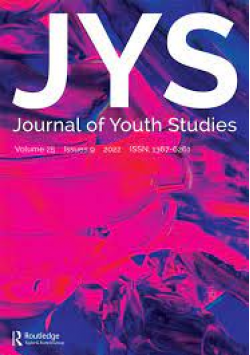
A multi-stakeholder analysis of the risks to early school leaving: comparing young peoples’ and educators’ perspectives on five categories of risk
Year: 2022Authors: Ceri Brown, Alison Douthwaite, Ioannis Costas Batlle & Nicola Savvides (University of Bath)DOI: 10.1080/13676261.2022.2132139Link: https://www.tandfonline.com/doi/full/10.1080/13676261.2022.2132139Keywords:
This paper considers the risks to Early School Leaving (ESL) as perceived by young people who are Early Leavers or at-risk of Early Leaving, and their educators in one region in South England. It draws on 38 interviews and focuses groups with 39 young people and 53 adults working in various roles across 11 educational settings including mainstream and specialist schooling, alternative learning provision and vocational education and training, as well as the local authority. Guided by a holistic framework to examine risks to ESL [Brown et al. (2021. “A Conceptual Framework for Researching the Risks to Early Leaving.” Journal of Education and Work 24 (7–8): 723–739. doi:10.1080/13639080.2021.2003007)], the paper analyses findings according to five different categories of risk: personal challenges; familial circumstances; social relationships; institutional features of school/work and structural factors of policy, economic disadvantage and the educational system. The findings highlight that while educators focused upon structural factors and personal challenges, young people themselves identified social relationships and institutional features of school as the most significant influencers on ESL risk. The contribution of this paper is two-fold; firstly, in presenting a comprehensive analysis of the multiple risk factors to Early Leaving; and secondly, in reflecting on the difference in emphases between young people’s perspectives of the key constituents of risk and those of the educators who support them.
![[DEV] Orienta4YEL](https://www.orienta4yel.eu/public/img/logo-horizontal.svg)






